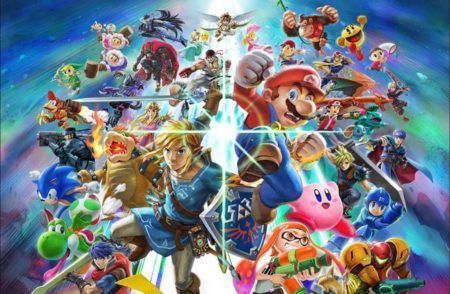In August 2019’s Evo 2019, Super Smash Bros. Ultimate outpaced its peers in the fighting game genre, racking up 3,492 entrants — more than 1,500 players ahead of Street Fighter V and Tekken 7. It was the first time that the game appeared at the global fighting game tournament.
In November, Ultimate rewrote the record books, claiming the distinction of being the best-selling fighting game of all time with 15.71 million units sold worldwide. It’s a remarkable feat, considering that the title was released just 11 months before in December 2018.
By these recent facts alone, it’s clear that the Super Smash Bros. franchise is one of Nintendo’s biggest successes. But immense popularity aside, the series is still noticeably lagging behind when it comes to having lucrative prize pools for its esports tournaments.
In an interview with business publication Nikkei (as translated by Kotaku AU), Nintendo president Shuntaro Furukawa explained why:
“Esports, in which players compete on stage for prize money as an audience watches, demonstrates one of the wonderful charms of video games,” said Furukawa.
“It’s not that we’re opposed to [supporting Smash esports]. So that our games can be widely enjoyed by anyone regardless of experience, gender, or age, we want to be able to participate in a wide range of different events. Our strength, what differentiates us from other companies, is this different worldview, not an[y] amount of prize money.”
Clearly, Nintendo still has huge opportunities for potential marketing wins in the competitive gaming scene. But it appears that the company is satisfied with Smash’s organic growth, particularly with Ultimate’s popularity providing a firm foundation.
- Super Smash Bros. Ultimate just became the best-selling fighting game of all time
- Evo 2019’s entrant numbers are in and Smash Bros. Ultimate is the clear winner
While Nintendo’s stance of keeping their games fun for everyone — regardless of skill or experience — is commendable, the growing legion of Smash fans in the professional, competitive arena have valid reasons to be dissatisfied. Compared to players of other esports titles, Smash’s top competitors have a notably lower ceiling for financial rewards, much less stable professional gaming careers, relative to their expertise.
At Evo 2019, for example, Super Smash Bros. Ultimate had a prize pool of roughly US$35,000 based solely on the entrants’ US$10 registration fees. At the end of the tournament, grand champion Leonardo “MKLeo” Lopez Perez took home US$22,000.
In comparison, the Street Fighter V tournament had US$70,000 up for grabs (US$31,700 went to the winner), and Samurai Shodown had a US$ 47,000 purse (from which the champ took home nearly US$28,400). The SFV prize pool ballooned after Capcom donated US$50,000, while SNK contributed US$30,000 to grow the Samurai Shodown reward.
To be fair, other titles at Evo 2019 had comparably small prize pools, including high-profile titles like Tekken 7 (US$18,890), Mortal Kombat 11 (US$15,740), and Dragon Ball FighterZ (US$11,960).
Limited prize pool contributions aside, Nintendo has provided support for select Super Smash Bros. events over the years, especially at grassroots-level competitions. The company typically offers logistical assistance and has occasionally hosted official tournaments.
Only time will tell if Nintendo will eventually decide to capitalize on the greater expansion opportunities that supporting esports events can bring. For now, Smash is all about friendly competition as far as the industry giant is concerned.
READ MORE: Let’s Make Big Moves is the first S-tier Super Smash Bros. Ultimate tournament of 2020

